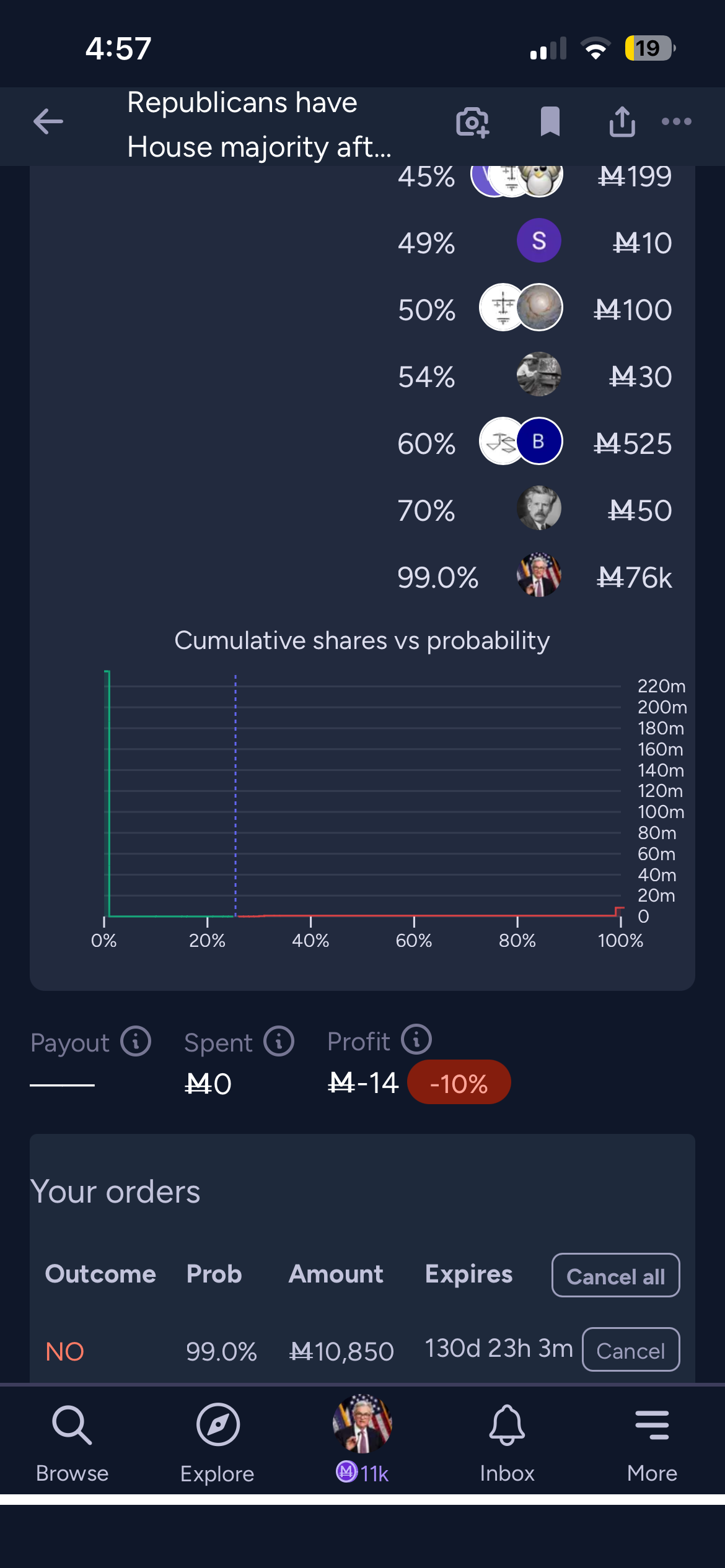
Resolution criteria
This market will resolve to "Yes" if, following the 2026 United States House of Representatives elections, the Republican Party holds at least 218 seats, thereby securing a majority in the House. Conversely, it will resolve to "No" if the Republicans hold fewer than 218 seats. The official election results, as reported by the Clerk of the U.S. House of Representatives, will serve as the primary source for resolution. (ballotpedia.org)
Background
The 2026 midterm elections, scheduled for November 3, 2026, will determine the composition of the 120th United States Congress. All 435 seats in the House of Representatives will be contested. As of June 2025, the Republican Party holds a narrow majority with 220 seats, while the Democratic Party holds 213 seats. (ballotpedia.org)
⚠️⚠️☣️ AI SLOP ZONE⚠️⚠️☣️
Update 2025-10-21 (PST) (AI summary of creator comment): The creator assumes all elected Representatives will be sworn in promptly after the election. If circumstances arise where Representatives are not sworn in (e.g., refusal to seat elected members), the creator will address those circumstances individually at the time.
People are also trading
Does it matter who has House majority? Congress never does anything anyway because of the filibuster in the Senate.
This one tripped me up for Predictle
https://electionbettingodds.com/House-Control-2026.html
Was thinking the odds were around 40%
@JeromeHPowell Perhaps I misunderstood what was going on. Aren't they currently failing to do budget reconciliation because of the filibuster? What's the nuclear option? I'm asking sincerely.
@HankyUSA The Senate is strictly majoritarian like the House. The filibuster isn't in the Constitution, its just a tradition in the Senate that is enshrined in its self-made rules. The Senate can vote to change its rules by majority vote at any time, and doing so for the filibuster is considered the "nuclear option". Some legislative options, like budget reconciliation, cannot be blocked by filibuster.
@HankyUSA to add to @Balasar budget reconciliation is a way to pass bills through the Senate without having to deal with the filibuster, is rule saying that if you have a bill that decreases the deficit over the long run, I think usually 10 years then you don’t have to have 60 votes for a bill and you can just pass it with a majority, they’re not using it right now because that’s not really what’s going on, but they did use it to pass the big beautiful bill in a controversial manner
@MachiNi Only to explain to people why this market matters!!! Many do not believe the Congress, especially the House, is as powerful as it is!
